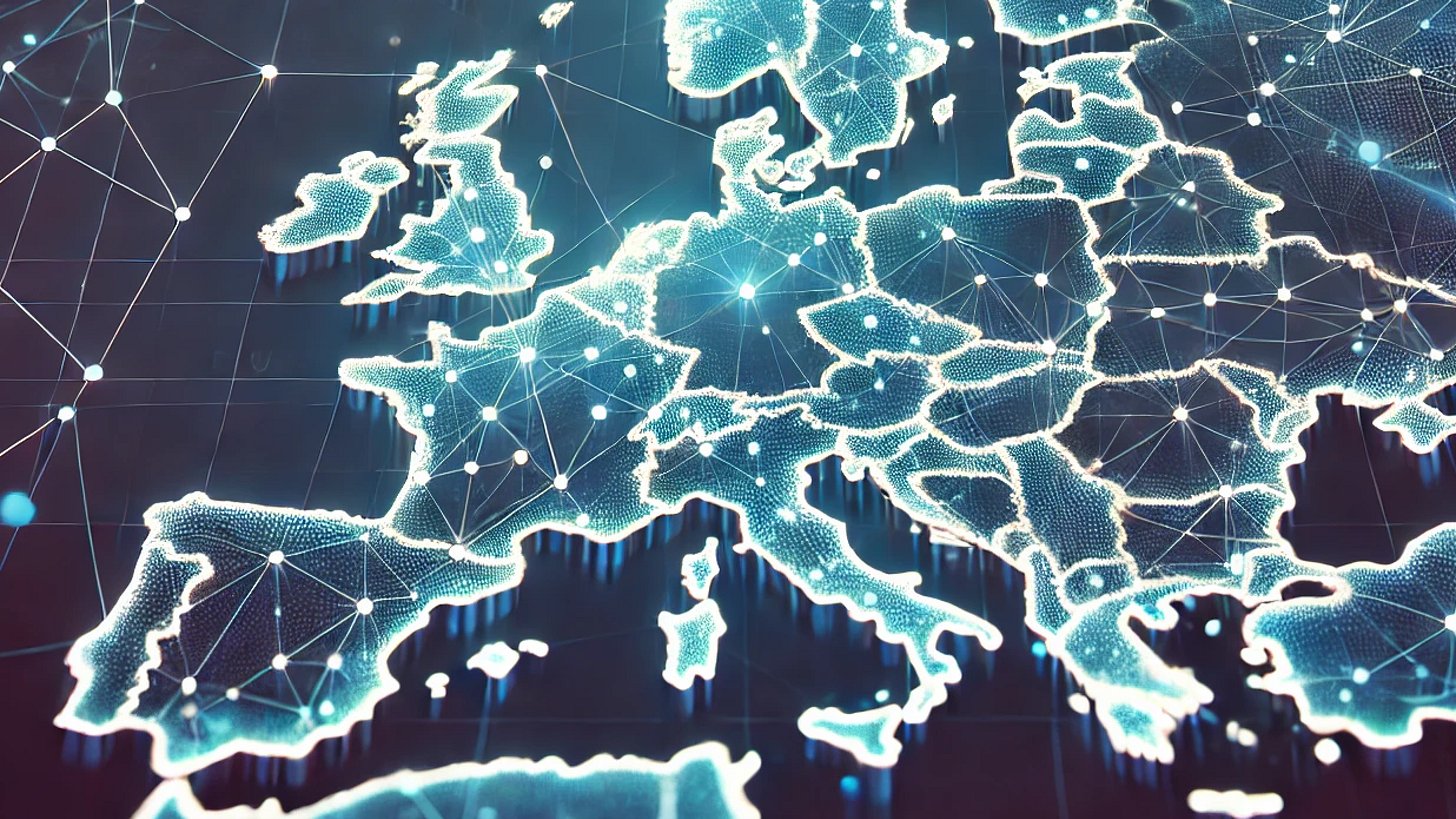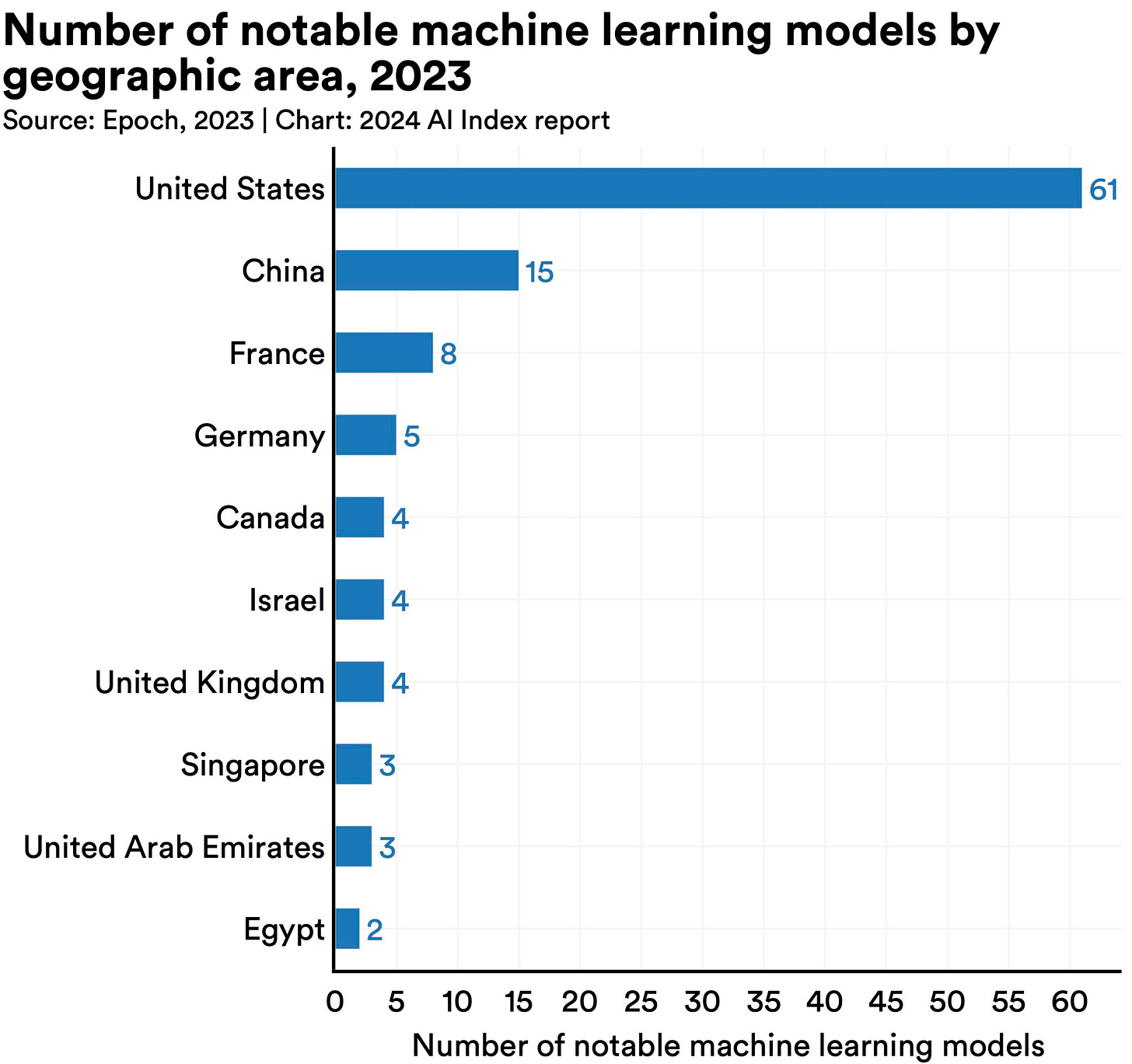AI in Europe
A huge opportunity to catch up.
Recently, Elon Musk’s xAI released a new AI model, Grok-2, which features “frontier capabilities in chat, coding, and reasoning.” By integrating a state-of-the-art AI image model named “FLUX.1”, Grok-2 can also generate high-quality images. However, FLUX.1 is not from xAI but from Black Forest Lab, a startup with most of its co-founders based in Freiburg, Germany.
In the last decades, Europe has been almost forgotten when it comes to digital innovation and information technology. The most successful tech companies in the world are from the US, particularly from Silicon Valley. Look at Apple, Google, Amazon, and Facebook. China has also done a good job of incubating numerous big domestic tech companies and several well-known international ones, including Alibaba and TikTok. But you haven’t heard of many fast-growing tech companies in Europe—maybe Spotify is an exception. Europe is known for data protection and forcing Apple to use USB-C, but it’s not known for great digital products.
However, with the rise of AI, things may hopefully change in Europe.
According to the 2024 AI Index Report, while the US remains far ahead, there are 21 notable AI models in the European Union, with 8 in France and 5 in Germany. Complementing this is the rapid growth of AI expertise; a study from last year found that Europe has more AI talent than the US, with the number of people working in artificial intelligence across Europe increasing by 1,000% over the past 10 years. London, Berlin, Paris, and Amsterdam have become hubs for GenAI startups, and a new AI hub is being built in the small German city of Heilbronn.
Europe is already home to several world-class AI companies and institutions. Black Forest Lab, which we mentioned earlier, is one of them. Another example is Mistral AI, based in Paris and renowned for its advanced Large Language Models. Also in Paris, Kyutai, an AI research lab, has received significant investment from billionaires Xavier Niel, Rodolphe Saadé, and Eric Schmidt. In July, Kyutai just released an AI model with unprecedented vocal capabilities called Moshi. DeepL, a company focused on AI-powered translation, was founded in Cologne, Germany. And in Sofia, Bulgaria, INSAIT is one of the world’s leading AI research institutes.
AI is the next generation technology. It will transform our society in the near future and bring significant opportunities to Europe. While it’s true that Europe doesn’t have its own search engine or social media giants, it may no longer need to build them. We can bypass the previous generation of technology and directly adapt AI.
This situation is similar to that of the fax machine. Germany adopted the fax machine after its invention, and it’s still widely used in many institutions. However, countries that never fully embraced fax machines now don’t need to—they have smartphones and internet and don’t even need to know what a fax machine is.
In the same way, if we approach the AI revolution swiftly and wisely, Europe can reinvigorate itself as a significant player in technology and innovation without needing to build another Google or Facebook. There’s no reason we can’t achieve this. We have a solid education system that can supply enough talent for the industry. Comparing to the US and China, the gap between rich and poor is much smaller here, society is less polarized, and the quality of journalism is far higher, making Europe an attractive place for well-educated AI talents from around the world.
Additionally, our strong regulation and commitment to data protection can also be an advantage, as the potential risks of AI are extremely high, and we need strong institutions to balance the power of AI companies. It’s better to be a bit slower if it means being safer.
Europe can become a leader in the global AI landscape, and having an AI power that genuinely cares about privacy would be good for everyone. This would particularly benefit young Europeans, who could study AI and work in companies at home instead of moving to the US. Europe should seize this opportunity and take on the responsibility of shaping a better future for the world.



